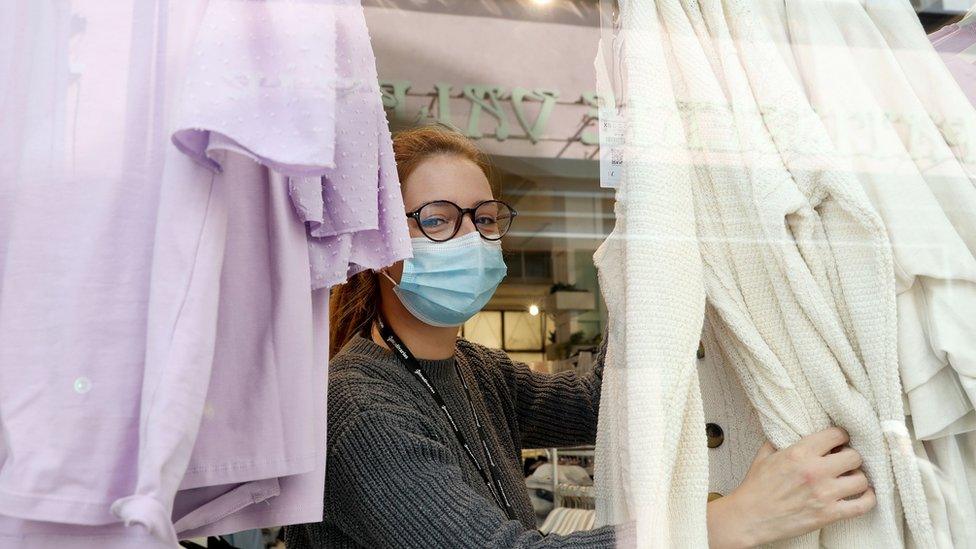Coronavirus: Dr Michael McBride defends localised restrictions
- Published
- comments

Stormont's chief medical officer has defended new localised restrictions across parts of Northern Ireland that come into force next week.
It comes after the measures were criticised by some as confusing, and there were calls for clarity.
The executive says its aim is to reduce interactions between people inside their homes within the affected areas.
People should "use their good judgement" when considering the restrictions, said Dr Michael McBride.
People living in the Belfast council area, Ballymena town and postcode areas BT43, BT28 and BT29 have been advised against travelling outside of affected zones to visit other people inside their homes.
No more than six people from two households will be allowed to meet in a private garden in the restricted zones.
'Not going into lockdown'
The measures are due to take effect from next week but First Minister Arlene Foster has already urged people in the areas to "act immediately".
On Friday, updated guidance to clarify the new restrictions was published by the executive, external.
Speaking to BBC Newsline, Dr Michael McBride said there was "no neat or easy solution" but that he hoped people would comply with the guidelines.
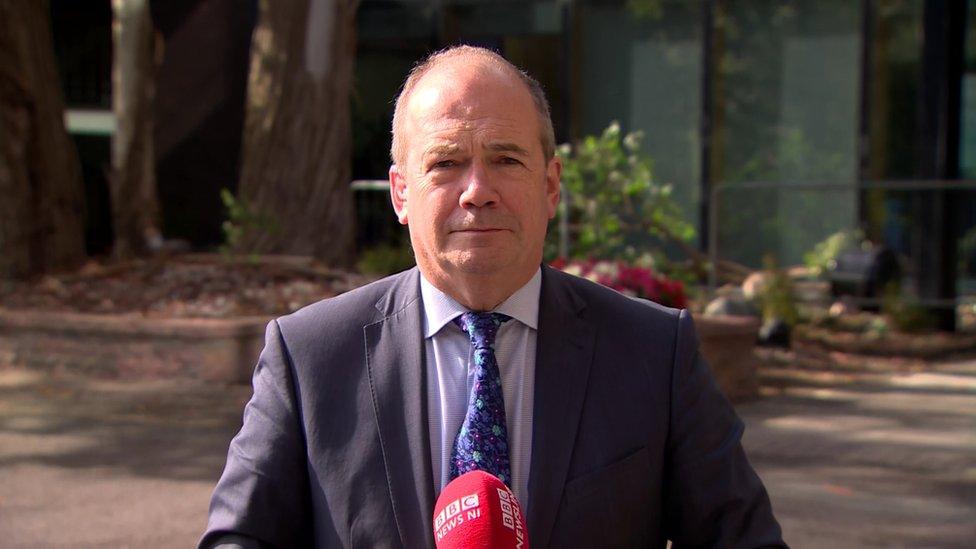
Dr McBride said there was "no neat or easy solution"
"The aim is to reduce community transmission between households," he said.
"We know if we don't achieve that and stop the spread of the virus we're going to see more people in intensive care."
Dr McBride insisted that the affected areas were "not going into lockdown" but the move was an attempt to pre-empt further increases of the virus to avoid consequences similar to the first coronavirus wave.
He added that he hoped the measures would be in place for "no longer" than a fortnight but that there was always a "lag time" between introducing measures and assessing their effectiveness.
What are the exemptions for home visits in the restricted areas?
They include:
Those in a social bubble with one other household
Those with caring responsibilities including childcare
Essential maintenance
Supported living arrangements
Visits required for legal or medical purposes
Marriage or civil partnerships where a person is terminally ill
What else does the advice say?
Hospitals and care homes in the affected areas will also be advised to limit visitors, with one family member being allowed to visit once a week.
The executive says schools are not affected and people should continue going to work if they cannot work from home.
The executive also says marriages, civil partnerships and funerals can continue to take place in the restricted zones in line with the current restrictions.
The updated guidance from Stormont also states that travelling into affected areas is still permitted for shopping and eating out.
But the advice remains to act responsibly if you intend to do this, and to judge how important a planned activity is before doing it.
What has the reaction been to the measures?
Some MPs from the affected areas were heavily critical of the restrictions.
DUP MP Ian Paisley, whose North Antrim constituency includes Ballymena, said he was "completely dissatisfied" and "very disappointed" by the new rules.
"We can't close our country down because of Covid," Mr Paisley said.
South Belfast MP Claire Hanna said she supported moves to curb the spread of Covid-19 but called for more clarity.
"It's very, very important that we're clear with people because even people who are trying, with the best will in the world, to engage are getting confused by some of the messages," Ms Hanna added.
What questions do you have about the latest restrictions? Let us know and a selection will be answered by a BBC journalist.
Use this form to ask your question:
If you are reading this page on the BBC News app, you will need to visit the mobile version of the BBC website to submit your question on this topic.
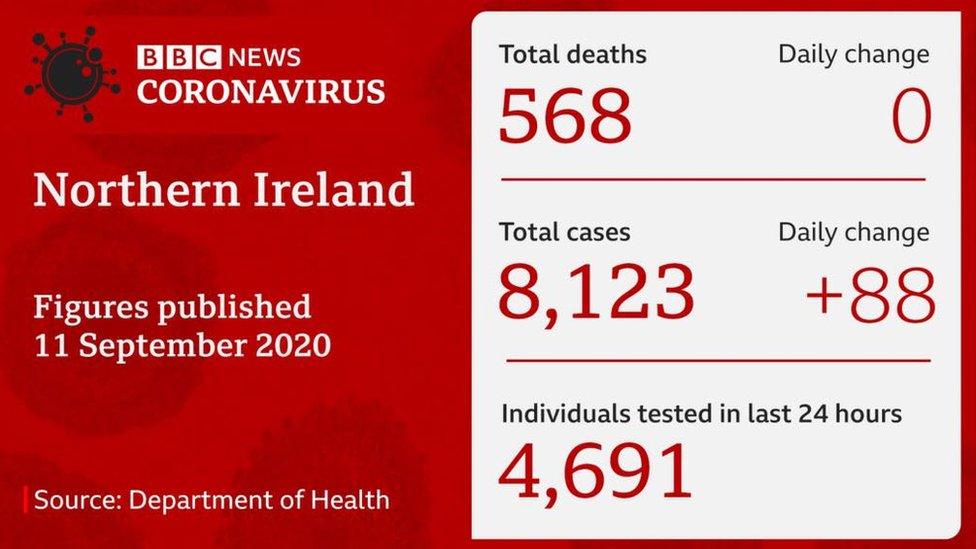
The Department of Health has recorded no new coronavirus related deaths in the past 24 hours
On Friday, the Department on Health in Northern Ireland reported no new coronavirus-linked deaths.
The death toll from the virus in NI remains at 568.
Eighty-eight people tested positive for the virus in the past day.
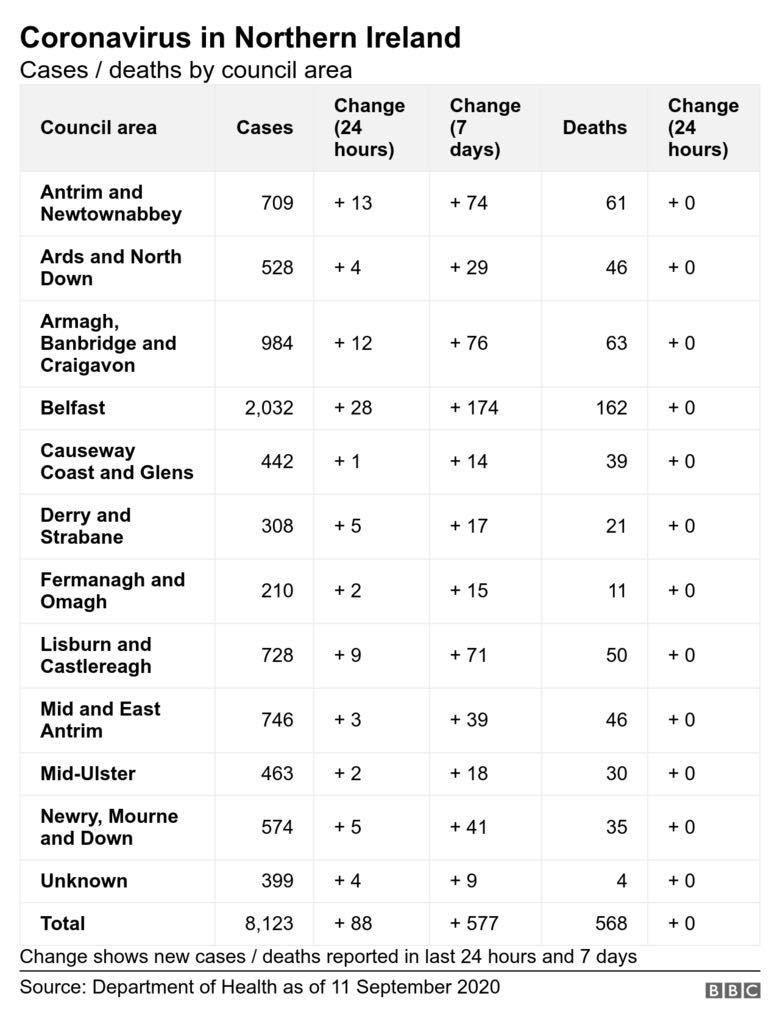
Belfast council area recorded the highest increase in cases in the past 24 hours, with 28 new cases reported.
Figures released by the Northern Ireland Statistics and Research Agency on Friday show that three coronavirus-linked deaths were registered last week.

Reaction: 'It's like the lights have been turned off again'
For many residents in the areas affected by the new restrictions, the announcement caused some bewilderment.
"It's understandable that they have to put these measures in place but we initially thought it was very confusing," said Stephanie Degnan, who lives in the BT28 postcode.
Another resident, Graeme Kelly, said the measures were "very unclear" while Jacqueline Montgomery said she was dismayed at restrictions being reintroduced after a period of easing.
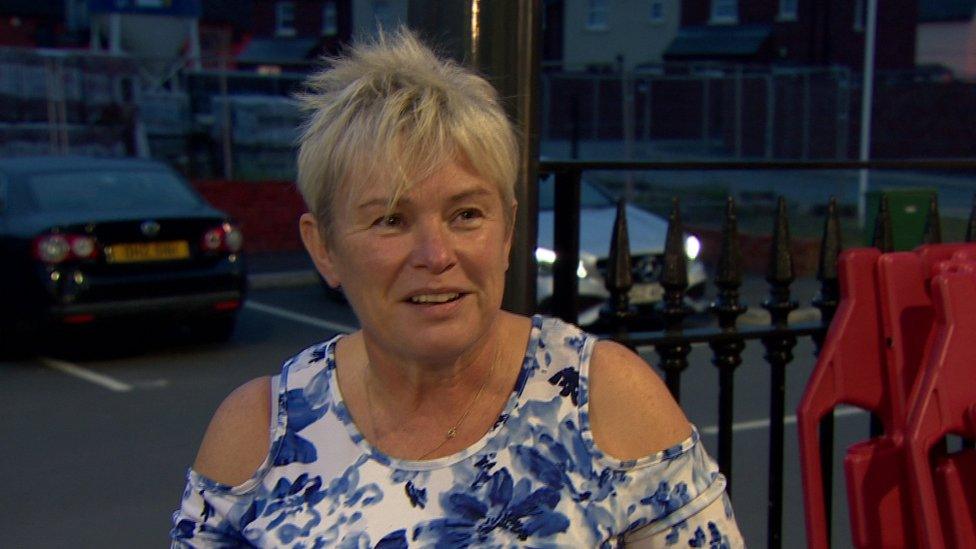
Jacqueline Montgomery said she was disappointed that restrictions were being re-introduced
"I think the lockdown has had massive influence on people's mental health and and just when you thought we're coming out of the dark side into the light... the lights have been turned off again."

The Alliance Party's Paula Bradshaw - a South Belfast MLA - acknowledged that ministers were dealing with a "difficult balancing act" but said they should come before the Stormont assembly next week to allow MLAs to "ask for the specifics of what these mean in practice".
Ulster Unionist leader Steve Aiken said he had spoken to the first and deputy first ministers to stress the importance of "coherence and clarity" in terms of the executive's public health message but added: "Covid-19 is coming back with a vengeance and we have to do something."
Deputy First Minister Michelle O'Neill tweeted that Mr Aiken had not contacted her.
Allow X content?
This article contains content provided by X. We ask for your permission before anything is loaded, as they may be using cookies and other technologies. You may want to read X’s cookie policy, external and privacy policy, external before accepting. To view this content choose ‘accept and continue’.
Queen's University virologist Dr Conor Bamford said the local restrictions would hopefully "help prevent the spread of the virus within households".
He added that the rise in cases among young people has led to a "real fear" it could spread to more vulnerable people.
"Parties and social-gatherings are a real good place to spread the virus and this is where they [the executive] are targeting."
- Published29 July 2021

- Published10 September 2020
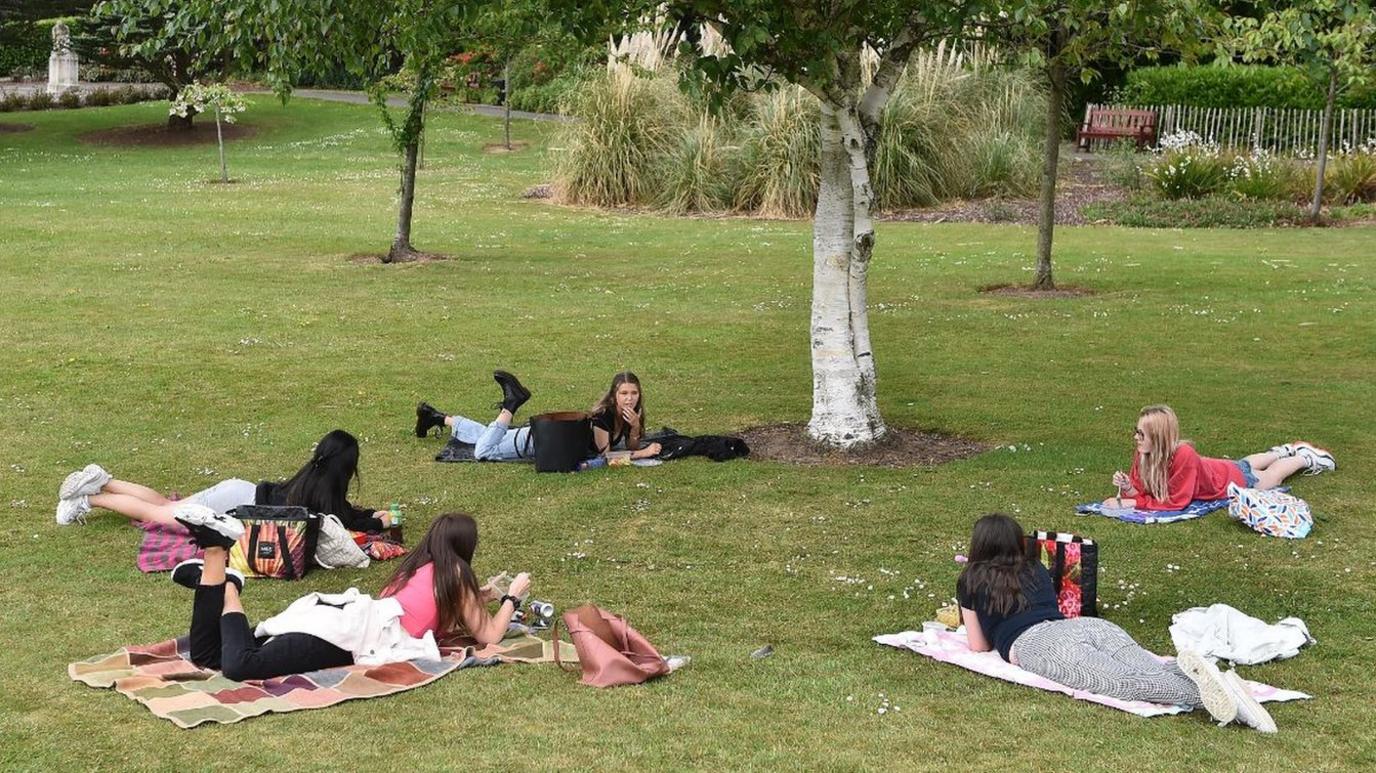
- Published8 January 2021
